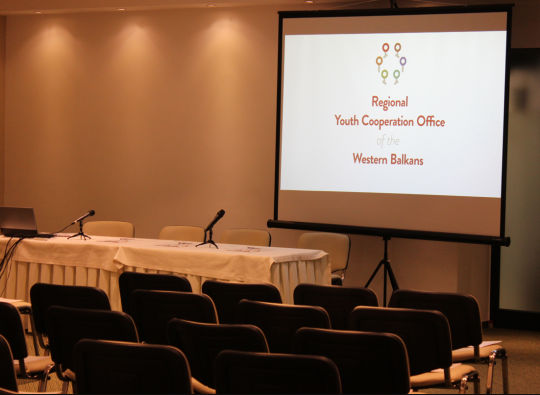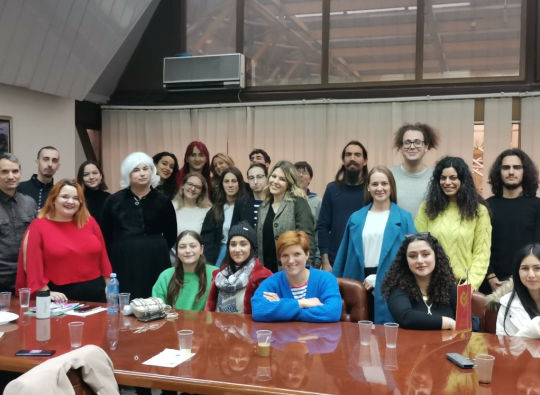The conference was organised within the EU-supported project ‘No Impunity for the Past’, implemented by the Youth Initiative for Human Rights, member of the Civic Alliance, the Montenegrin Parliament, Law School, Youth Initiative for Human Rights in Serbia, NGO Documenta from Croatia and NGO Bukovica from Pljevlja.
The conference was opened by the Vice President of the Parliament of Montenegro Branka Bošnjak, who said that dealing with the past should have been finished long ago: “In my opinion, the Resolution is a step forward, because it contains what was painful for some nations”. She stressed that the Resolution contains a provision that no nation can be identified as genocidal, but only individuals.
Chief Prosecutor of the International Residual Mechanism for Criminal Tribunals Serge Brammertz said that the Resolution on Srebrenica, adopted by the Parliament of Montenegro, is excellent, addressing the main challenges, recognition of the victims and existence of the genocide.
Mr Brammertz said that glorifying war criminals and denying crime are absolutely inacceptable. Calling to mind the Ratko Mladić judgment, he said that many war crimes cases remain to be solved on the territory of former Yugoslavia.
“Our response is: yes, the prosecutor’s office and criminal prosecution and judgments do not lead to reconciliation; reconciliation should come from the society, from victims; groups, from the groups of perpetrators, and you need responsible politicians who will promote such reconciliation”, said Mr Brammertz.
According to him, Mladić’s judgment has shown how important it is to solve these issues, although it once again raised the tensions, because there were some who remained displeased.
Mr Brammertz reminded that Montenegro had opened only a few cases and offered assistance to the Montenegrin prosecutor’s office for solving the war crimes cases: “We cannot say that much of a progress has been achieved in solving war crimes committed by the Montenegrin nationals, and this is the reason why we are going to get more intensively involved with our fellow prosecutors in Montenegro”, he said.
Head of the EU Delegation to Montenegro, Oana Cristina Popa said that the adoption of the Resolution on Srebrenica is good, because it condemns the Srebrenica genocide: “Political leaders are obliged to work towards reconciliation”, said Ms Popa. She said that this includes the prosecution and investigation of the crimes committed during the 1990s.
Civic Alliance Programme Director Milan Radović said that young people mostly do not know what had happened during the 1990s. He said that it may be concluded that Montenegro is not in the process of dealing with the past, but rather in the process of forgetting the war past. He also stressed that the outcome of this project is the launching of an information-documentation centre, the keys of which were then handed over to Branka Bošnjak as the representative of the Parliament of Montenegro.







